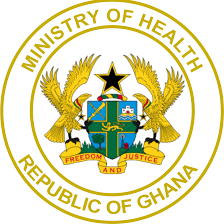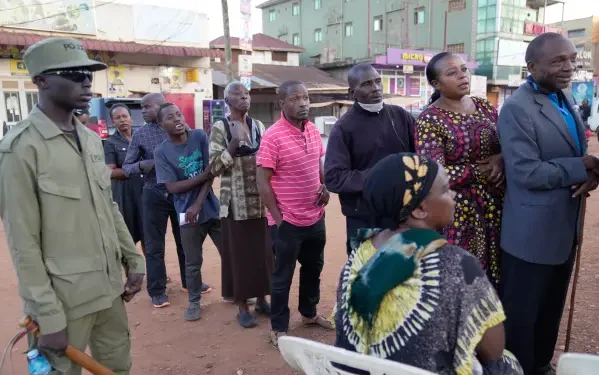The Dean of the Oti Regional MMDCEs and Municipal Chief Executive (MCE) for Krachi West, Prosper Addo, has underscored the urgent need for sustainable solutions to the water crisis fueling the severe outbreak of typhoid fever in the Oti region.
He argued that while short-term measures are ongoing, a long-term infrastructure response remains critical as the region grapples with the situation. Health authorities and local government officials have raised urgent calls for intervention.
Figures released by the Oti Regional Health Directorate revealed that 22,261 confirmed cases have been recorded this year, more than double the 10,233 cases reported in the first quarter of 2025. This development represents a grave public health crisis in a region where potable water remains scarce.
The Oti Regional Minister, John Kwadwo Gyapong, described the trend as deeply concerning, pointing to the magnitude of infections across communities.

“That is the report we have from the Environmental Secretariat in the Oti Region. If we are to break it down, the 20 people you find in the Oti Region, two of them have typhoid”
John Kwadwo Gyapong, Oti Regional Minister
The rapid spread has been attributed to poor sanitation practices and unsafe drinking water sources, particularly as many residents depend on untreated water from the Volta Lake and other contaminated supplies. Health experts warn that the persistent situation could overwhelm local medical facilities.
“We actually have plans in place to provide clean water. First of all, there are boreholes that are being drilled in the various municipalities and districts. The bigger picture is that those boreholes do not solve the problem because the water obtained from the borehole is contaminated.
“What must be done is to get a water treatment plant that will draw water from the lake, treat it and serve the people”
Prosper Addo, Dean of the Oti Regional MMDCEs and MCE for Krachi West

According to him, without a central water treatment facility, residents will continue to face recurring outbreaks of waterborne diseases.
Vaccines and Medical Staff
Beyond infrastructure, Mr. Addo also appealed for immediate health interventions. He urged the Ministry of Health to supply vaccines to the region and deploy additional health personnel to manage the crisis.
“We are calling on the Ministry of Health, that the various CHPS compounds, clinics, and hospitals within our jurisdiction are resourced with the typhoid vaccines so that the people can be vaccinated.
“If nothing is done, next year around this time, the figures will be alarming because the Bagre dam is being spilt and the water is coming”
Prosper Addo, Dean of the Oti Regional MMDCEs and MCE for Krachi West
The MCE also added that experts were urgently needed to reinforce the capacity of local health workers already overstretched by the rapid rise in cases, warning that health facilities across Oti risk being overwhelmed if cases continue to mount at the current pace.
Many district hospitals and CHPS compounds, already grappling with limited personnel and resources, are operating at near full capacity. Mr. Addo expressed fears that without timely medical supplies, particularly vaccines, fatalities may rise. He reiterated that water safety and preventive vaccination were the two most crucial interventions at this stage.

The situation in Oti has become a test of Ghana’s broader public health preparedness.
With typhoid cases cutting across multiple districts, the regional leadership has stressed that government must prioritize a comprehensive strategy that combines water infrastructure, vaccination campaigns, and improved sanitation enforcement.
For now, the people of Oti continue to rely heavily on untreated and often contaminated water sources. Local authorities warn that unless immediate steps are taken, the region may record even higher figures in the months ahead, escalating what is already one of the most severe typhoid outbreaks in recent years.
READ ALSO: Absa Bank Crowned Bancassurance Leader at 2025 Ghana Insurance Awards























